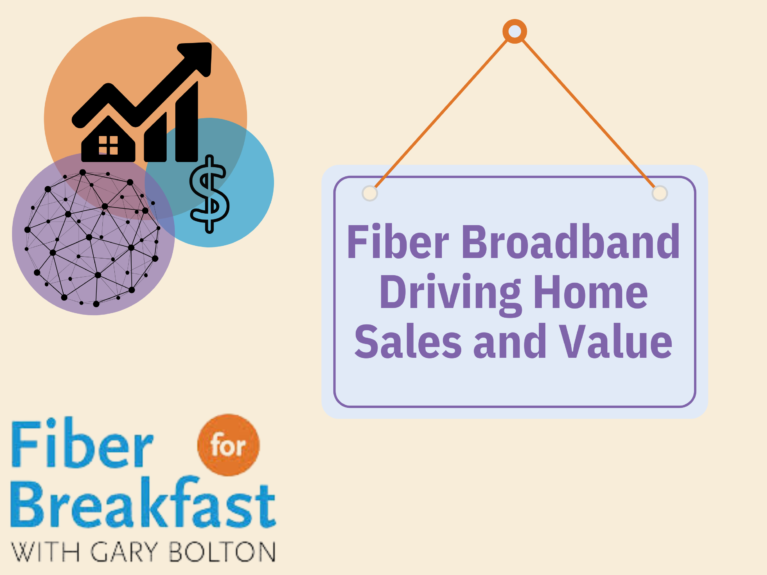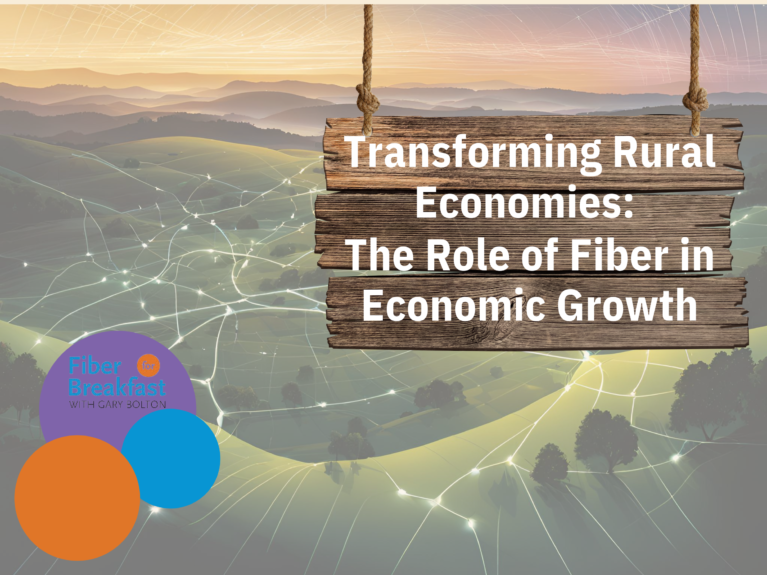Fiber Broadband – An Investment for the Future
Fiber Broadband – An Investment for the Future
Access to affordable, reliable, high-speed internet is the latest investment in American infrastructure that will deliver immeasurable value, especially in rural areas. The Broadband, Equity, Access, and Deployment (BEAD) program provides funding to accomplish this, following other historic investments for infrastructure like paved roadways in the late 1800s and electricity in the 1930s.
During this week’s Fiber for Breakfast episode, Andy Berke, administrator of the U.S. Department of Agriculture’s Rural Utilities Service (RUS), noted that the Biden-Harris Administration’s “Internet for All” movement is similar to the investments made by FDR when he invested in electricity for all in 1935. “We unleashed the power of our country to become the dominant player of the 20th century, and those investments are still paying off today,” noted Berke.
RUS is responsible for ReConnect, a federally funded program providing loans, grants, and loan-grant combinations to help bring broadband to rural areas. Berke recalled an encounter with an elderly farmer that remembered the impact electricity had on his childhood farm and how internet is just as essential today. Berke recalled, “He said, ‘My dad wired the whole barn before it happened. And then the day that we knew we would have electricity, he worked until late and then he brought us all out to the barn and flipped the switch, and the light came on…I think about that all the time, because that’s what internet is for me today. My high-speed internet puts tools in my hand.’ Then he showed me his little farm black book. He said, ‘This is where my dad and I used to keep all of our information about our farming. That’s nothing compared to my Precision Ag on my tractor.’”
Precision Ag is just one of the many applications that can bring real, long-lasting value to rural locations. With reliable, high-speed connectivity, residents can gain access to remote health care, education, work, manufacturing, shopping, entertainment, and more.
The National Telecommunications and Information Administration (NTIA) recently proposed alternative technologies for broadband beyond fiber, including low Earth orbit (LEO) satellites or fixed wireless services. These technologies could leave some rural communities with unreliable internet connections and require continuous upgrades in the future, which will continue to cost additional funding while maintaining a digital divide. As FBA President and CEO Gary Bolton said, “…if you can get power to someone’s house, you can get fiber there.”
Bolton asked for Berke’s advice on how to ensure that Americans aren’t shortchanged by “good enough for now” broadband connections. Berke offered that the RUS mandate will ensure that people with unreliable internet (less than 25/3 Mbps) are reached by its funding to provide reliable, high-speed internet that allows citizens to participate in the modern economy. “You can’t tell your employer if it’s raining, ‘I can’t work today.” Or, if the wind’s blowing too hard and something’s happening with the trees, ‘I can’t work today,’” he added.
Burke commented that the end goal of the Administration’s “Internet for All” philosophy is future-proof connectivity and that while these historical investments might be extensive, “Infrastructure is never done. We want to keep reminding leaders in Congress that this work will continue.”
For more on RUS and connecting every American to affordable, reliable, and high-speed fiber broadband, listen to the latest Fiber for Breakfast podcast.
###



